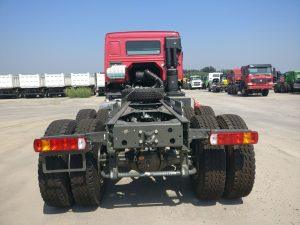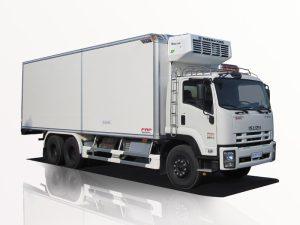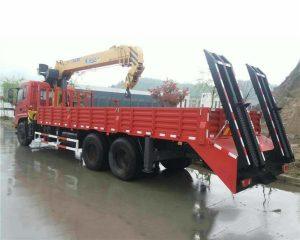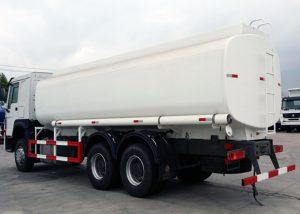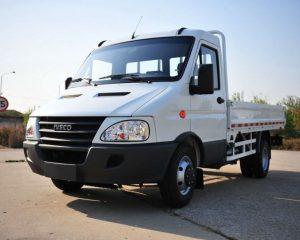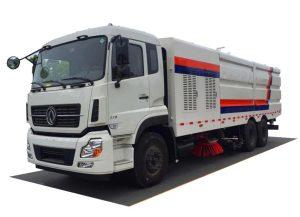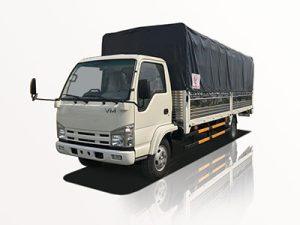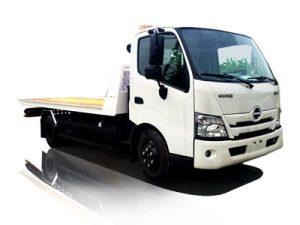Monday to Saturday - 8:00 -17:30
Everything You Need to Know About Small Trash Trucks
Introduction
When we think of waste management, large refuse trucks often come to mind. However, small trash trucks play a crucial role in efficient waste collection, especially in urban areas and residential communities. These compact vehicles are designed to navigate narrow streets and tight corners, making them invaluable for local recycling and refuse pickup. In this article, we will explore what small trash trucks are, their benefits, types, manufacturers, and practical considerations for municipalities and businesses. By the end, you’ll have a thorough understanding of small trash trucks and their significance in waste management.
What Are Small Trash Trucks?
Small trash trucks are vehicles specifically designed for waste collection in areas where larger trucks cannot operate effectively. They feature compact designs, reduced turning radii, and often come equipped with advanced waste management technologies. These trucks are ideal for urban areas, residential neighborhoods, and other environments that require nimble waste collection solutions.
Key Features of Small Trash Trucks
- Compact Size: Smaller dimensions allow for maneuverability in confined spaces.
- Payload Capacity: Typically, smaller payloads compared to standard refuse trucks but adequate for residential collection.
- Environmentally Friendly Options: Many are now available in electric or hybrid models to reduce emissions.
- Customizable Designs: Trucks can be fitted with various attachments and containers based on specific needs.
The Importance of Small Trash Trucks
Small trash trucks serve several essential functions in waste management, particularly in urban settings. These benefits include improved service frequency, lower emissions, and enhanced access to hard-to-reach areas.
Improved Access to Tight Spaces
Small trash trucks can maneuver through narrow alleyways and congested streets where larger vehicles cannot go. This capability ensures that residential areas and urban neighborhoods are serviced efficiently, thus promoting cleaner environments.
Enhanced Environmental Impact
As urban populations grow, so does the need for environmentally responsible waste management solutions. Small trash trucks, especially electric and hybrid models, contribute to lowering overall greenhouse gas emissions by operating with reduced fuel consumption.
Cost-Effectiveness
For local governments and businesses, investing in small trash trucks can lead to lower operational costs. Fuel-efficient models save on gas expenses, while their compact size can lessen wear and tear on infrastructure in crowded areas.
Types of Small Trash Trucks
Small trash trucks come in various types, each suitable for different applications. Here are the most common types:
1. Rear-Loader Trash Trucks
Rear-loaders are traditional small trash trucks where the waste is loaded from the back. They are generally efficient for residential pickup and are available in various capacities.
2. Side-Loader Trash Trucks
Side-loaders offer a unique function where they can collect waste from the side of the truck. This type is often automated, requiring minimal human effort and maximizing safety during collection.
3. Front-Loader Trash Trucks
Front-loaders are ideal for commercial use, especially in servicing dumpsters. Their robust lifting systems can handle larger loads, making them suitable for businesses and public spaces.
4. Electric Trash Trucks
Increasingly popular, electric small trash trucks offer an eco-friendly alternative, helping municipalities and companies meet sustainability goals. They reduce noise and air pollution in urban environments.
Choosing the Right Small Trash Truck
Selecting the proper small trash truck requires careful consideration of various factors. Below are practical tips to guide your decision-making process.
1. Assess Your Needs
Evaluate the type of waste you will be collecting, the frequency of collection, and the areas you will service. Understanding your specific needs will help you choose a truck with the appropriate features.
2. Consider Vehicle Size and Payload Capacity
Determine the truck size based on your service area’s dimensions and nuances. While small trucks are compact, selecting a model with an adequate payload capacity is essential for efficient operations.
3. Evaluate Emission Standards
With growing environmental concerns, opting for models that comply with current emission standards is wise. Electric or hybrid models provide excellent alternatives that support sustainable practices.
4. Analyze Cost vs. Value
When investing in a small trash truck, weigh the purchase price against long-term operational costs. Look for vehicles with reliable warranties and efficient fuel consumption.
Popular Manufacturers of Small Trash Trucks
Several manufacturers specialize in small trash trucks, offering a variety of models to choose from. Here are some well-known names in the industry:
1. Ford
Ford has been a leading manufacturer of small trucks, including compact refuse trucks designed for city uses.
2. Freightliner
This company offers a range of small chassis that can be customized as trash trucks, providing flexibility in design and capacity.
3. Isuzu
Isuzu produces sturdy, fuel-efficient small trash trucks, popular due to their reliability and ease of maintenance.
4. Nissan
Nissan specializes in innovative solutions for urban waste management, including electric models aimed at reducing environmental impact.
Costs Associated with Small Trash Trucks
Understanding the costs associated with small trash trucks can help you make an informed decision. Here’s what to consider:
1. Purchase Price
Small trash trucks can range significantly in price based on the model, features, and manufacturer. Generally, the cost can range from $50,000 to $150,000.
2. Maintenance Costs
Routine maintenance is essential for ensuring the longevity of your truck, including oil changes, tire rotations, and inspections. Set aside a budget for ongoing upkeep.
3. Fuel and Operational Costs
Evaluating fuel efficiency is crucial, especially when using gasoline-powered trucks. Electric models, while initially pricier, can lead to lower operating costs over time.
4. Replacement Parts
Consider the availability and cost of replacement parts for your chosen model, as some manufacturers may have more accessible supply chains than others.
Practical Examples of Small Trash Truck Usage
Understanding practical applications can highlight the importance of small trash trucks in waste management. Here are a few examples:
Neighborhood Waste Collection
Small trash trucks are perfect for residential areas where narrow streets limit larger trucks. They can efficiently navigate these spaces while ensuring that waste is collected without problems.
Commercial and Industrial Collection
Small trash trucks are often used to service smaller businesses and industrial sites where larger trucks may struggle to operate. They provide flexibility and adaptability for a variety of settings.
Urban Recycling Initiatives
With an increasing focus on recycling, small trash trucks are widely utilized in urban recycling programs. They can efficiently make stops for co-mingled recycling in densely populated areas.
FAQs About Small Trash Trucks
1. What are the benefits of using small trash trucks over larger models?
Small trash trucks can navigate tight spaces, provide improved fuel efficiency, and are often more environmentally friendly, especially in urban settings.
2. How much do small trash trucks typically cost?
Prices can range widely based on features and manufacturer, generally between $50,000 and $150,000.
3. Are electric small trash trucks worth the investment?
Yes, electric small trash trucks generally lead to lower operational costs over time, reduced emissions, and contribute to sustainability goals.
4. How often should small trash trucks be maintained?
Routine maintenance should occur regularly, typically every 5,000 to 10,000 miles, or as recommended by the manufacturer.
5. Can small trash trucks be used for commercial waste collection?
Yes, many small trash trucks are designed for both residential and commercial waste collection, depending on their specific configurations.
6. What should I consider when purchasing a small trash truck?
When purchasing a small trash truck, consider your specific needs, the truck size and payload capacity, emission standards, and the cost versus the value provided.


